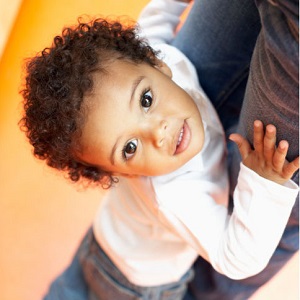 A great deal of what we bring to our roles as parents comes from the way our own parents treated us. This includes the big areas of values and morality, as well as the smaller corners of daily life, such as determining who is responsible for which chores. This is what makes a family a family: the shared values and traditions passed along from one generation to another.
A great deal of what we bring to our roles as parents comes from the way our own parents treated us. This includes the big areas of values and morality, as well as the smaller corners of daily life, such as determining who is responsible for which chores. This is what makes a family a family: the shared values and traditions passed along from one generation to another.
But perhaps there are things our parents didn’t know that might have been helpful to them in raising us. There are things you can learn that will help make you better parents than your parents were, for all their good intentions.
They relate to understanding your child’s emotional and psychological development. If you have a clear understanding of what your child is capable of doing, understanding, and conceptualizing at a particular age, then you will be able to reach the child at his or her own level of capability with your words, your actions, and, perhaps most importantly, your expectations.
There are some obvious milestones in the development of a child from birth through late adolescence. These include first steps, talking, learning to socialize with other children, completing homework assignments on time, identifying and developing personal talents, meeting the expectations of coaches and teachers, and figuring out enough about personal identity to be able to face the world as a fledgling adult when the day comes to leave home.
What are the concurrent developmental phases that accompany the outward markers of growth and change in your child? These are the areas where insight can help you match your parenting with the child’s age and capabilities, so that you have less stress and the child has optimal support.
Erik Erikson, a great 20th-century psychologist, described what he called the psychosocial stages of development (see Erikson, E.H., Childhood and Society, 1950, or Identity: Youth and Crisis, 1968). His thoughts resonate today and include the following broadly outlined phases of normal development.
In the early years, the child is learning key aspects regarding trust: Who is a reliable and consistent caregiver? Am I safe here? These questions and their answers are experienced pre-verbally, which means that the way you care for your infant through the toddler years—your attention to the basic needs of hunger, thirst, touch, sleep, and physical comfort—all create the child’s sense of how safe he or she will feel in the world. If you are thoughtful and concerned for the child’s well-being at this stage, the world will become a place of caring adults. If child care is intermittent or inadequate, the child’s notion of safety will be compromised. This is a time for consistency.
In the early years of childhood come the first attempts at autonomy. This is when you see a toddler begin to leave the shelter of Mommy and/or Daddy and reach out to make connections with other people. Toddlers can do this only if they feel confident that Mommy and/or Daddy will be there when they return. If they are unsure of this, they will be reluctant to begin to explore the world. Your best efforts here include understanding the child’s needs for security and encouraging the child to move into the world beyond the family structure, knowing that you are there in the background.
Once you have a preschooler on your hands, you are looking at a child who is beginning to see that he or she can actually affect the world. You see attempts at managing the actions of pets and other children. In play, you can see stage managing that demonstrates this newly discovered power of influence. If a child is supported in this and encouraged to step out into the world, confidence will develop. If the child is told he is too bossy, and scolded rather than shown more appropriate behavior at this stage, guilt and shame can develop, along with a reluctance to participate in challenges.
You can help during this phase by understanding that your child’s need to begin to separate as an individual with power in the world is a key component in developing the independence that you eventually want for your child. Your guidance here is important because encouragement and gentle course correction will help the child learn which behaviors are acceptable to you and to others, and which are not.
Once a child starts school, the greatest developmental task is the development of a strong sense of self as a competent person. This comes from successful academic and social experience. Your encouragement in helping a child believe he or she is capable of meeting the demands of the classroom while also navigating the social environment is of great importance during these years. You help a child with homework, but you don’t do it for him/her. You listen to the grievances of playground politics, and instead of immediately taking only your child’s side, you offer for consideration various interpretations of the behaviors of other children, to help your son or daughter begin to see that there are other ways of looking at the same situation besides his/her own. It is still appropriate to support your child emotionally and to make certain that any obvious wrongs are righted, but the real learning at this age is in understanding the social landscape and taking care of oneself while honoring the points of view of others.
With the onset of puberty and adolescence, the game changes for your child on just about every front: the very earth that once felt so familiar beneath his or her feet is now shifting like sand. Not only does the world look different, but he or she has to figure out who he/she is in relationship to it. This is the task of adolescence. This is the chaos you witness in your teenager. It is a time of trying on various roles and affecting different behaviors, in an effort to identify which ones are the best and most accurate representations. This can be a maddening time for parents who just want to tell their children to knock it off.
If ever there is a time for patience in the life of a parent, this is it. This is a period of intensity on all fronts: emotionally, psychologically, and spiritually. Everything is in play. Nothing is certain. The best you can do at this time, in the interest of your child’s healthy identity development, is to continue to provide a safe and supportive emotional environment upon which your child can rely while everything else may seem to tip sideways.
The challenge, of course, is to remember that you didn’t learn anything about being yourself because your mother or father told you who you were. You learned by going through the very same process your own child is going through. If your parents were not patient with you, you might remember the feeling of searing wounds that felt as if they would last forever.
If you remain conscious of where your child is developmentally at any particular age, you can tailor your behavior and guidance to meet his or her needs and abilities to absorb your help. It is not so difficult a task if you bear in mind that a child matures slowly over the years under the warm light of your support.
Parenting is not for the faint of heart, however; challenges will most certainly arise. The easiest way to think of this is that your child is a young person who needs you to be the adult so that he or she is free to be the child. It is safety and security that give your child the opportunity to learn, make mistakes, and grow. You provide this best by understanding the developmental phase of your child at any particular age.

The preceding article was solely written by the author named above. Any views and opinions expressed are not necessarily shared by GoodTherapy.org. Questions or concerns about the preceding article can be directed to the author or posted as a comment below.

 What If My Husband and Child Both Have High-Functioning Autism?
What If My Husband and Child Both Have High-Functioning Autism? The Rewards of Raising a Child Who Is 'Different'
The Rewards of Raising a Child Who Is 'Different' Managing the Milestone: Your Child’s 18th Birthday
Managing the Milestone: Your Child’s 18th Birthday

Please fill out all required fields to submit your message.
Invalid Email Address.
Please confirm that you are human.
Leave a Comment
By commenting you acknowledge acceptance of GoodTherapy.org's Terms and Conditions of Use.